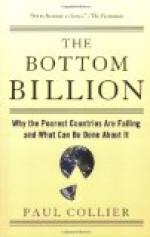TENNYSON, ALFRED LORD. Born at Somersby, Lincolnshire,
Eng., Aug. 6, 1809;
died at Aldworth House, near Haslemere,
Surrey, Oct. 6, 1892. Student
at Cambridge 1828-31, but did not take
a degree; trip to the Pyrenees
with Arthur Hallam 1832; granted a pension
of L200 by Peel 1845; after
residing successively at Twickenham and
Aldworth, he settled at
Farringford, the Isle of Wight, 1853.
Became poet laureate 1850;
raised to the peerage 1884. Some
of his well-known poems are “The Lady
of Shalott,” “The Palace of
Art,” “The Lotus Eaters,” “A
Dream of Fair
Women,” “Oenone,” “Morte
d’Arthur,” “Dora,” “Ulysses,”
“Locksley
Hall,” “The Princess,”
“In Memoriam,” “Maud,” “Ode
on the Death of the
Duke of Wellington,” “Charge
of the Light Brigade,” “Idylls of the
King,” “Enoch Arden,”
and the plays “Queen Mary” and “Becket.”
Life,
not Death; Ring Out, Wild Bells;
The Greatness of the Soul;
Ulysses; Will.
V
VAN DYKE, HENRY. Born at Germantown, Pa., Nov.
10, 1852; graduated at
Polytechnical Institute of Brooklyn 1869;
A.B. degree from Princeton
1873; M.A. degree from there 1876; graduated
from Princeton
Theological Seminary 1877; studied at
University of Berlin 1877-9; has
received honorary degrees from Princeton,
Harvard, Yale, Union,
Wesleyan, Pennsylvania, and Oxford.
Pastor of United Congregational
Church, Newport, R.I., 1879-82, and of
the Brick Presbyterian Church,
New York, 1883-1900; professor of English
literature at Princeton from
1900; U.S. minister to the Netherlands
and Luxemburg 1913-17. Author
of “The Poetry of Tennyson,”
“Sermons to Young Men,” “Little Rivers,”
“The Other Wise Man,” “The
First Christmas Tree,” “The Builders, and
Other Poems,” “The Lost Word,”
“Fisherman’s Luck,” “The Toiling
of
Felix, and Other Poems,” “The
Blue Flower,” “Music, and Other Poems,”
“Out-of-Doors in the Holy Land,”
“The Mansion,” and “The Unknown
Quantity.” Four Things, 3; Work,
65.
W
WHITTIER, JOHN GREENLEAF. Born at Haverhill,
Mass., Dec. 17, 1807; died
at Hampton Falls, N.H., Sept. 7, 1892.
Of Quaker ancestory; father a
poor farmer; as a boy he injured his health
by hard work on the farm.
Taught school; attended Haverhill Academy
for two terms 1827-8; edited
Haverhill Gazette 1830; returned
to the farm in broken health 1832.
Member of Massachusetts Legislature 1835-6.
An ardent opponent of
slavery; edited the Pennsylvania Freeman
1838-40; several times
attacked by mobs because of his views
on slavery. Leading writer for
the Washington National Era 1847-57;
contributed to the Atlantic
Monthly 1857. Some of his well-known
poems are “Maud Muller,” “The
Barefoot Boy,” “Barbara Freitchie,”
“Snow-Bound,” and “The Eternal
Goodness.” My Triumph, 90.




